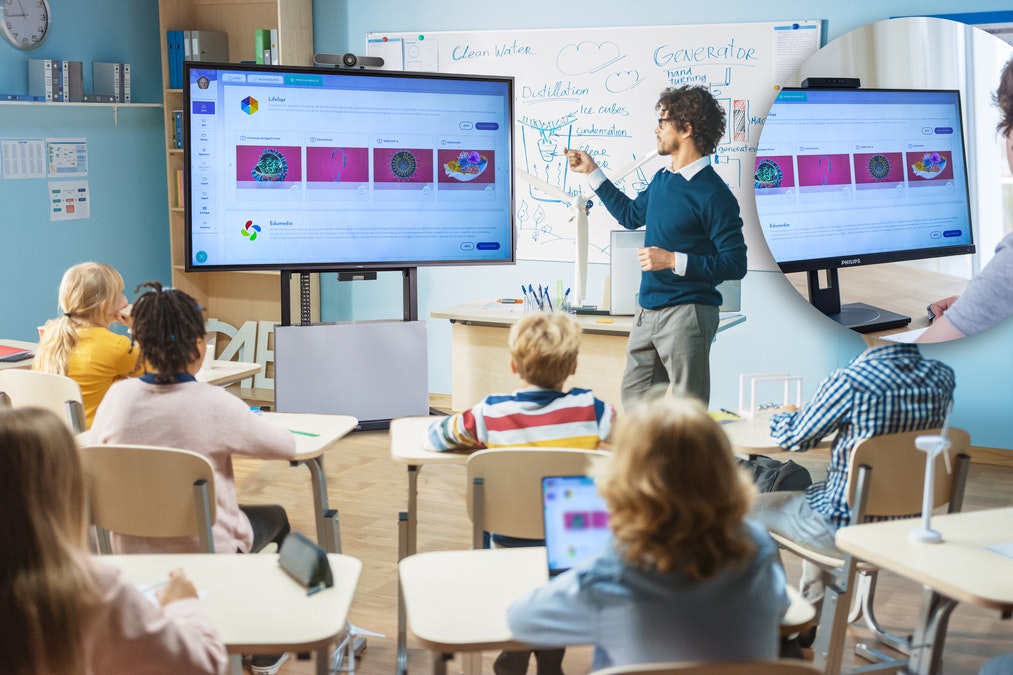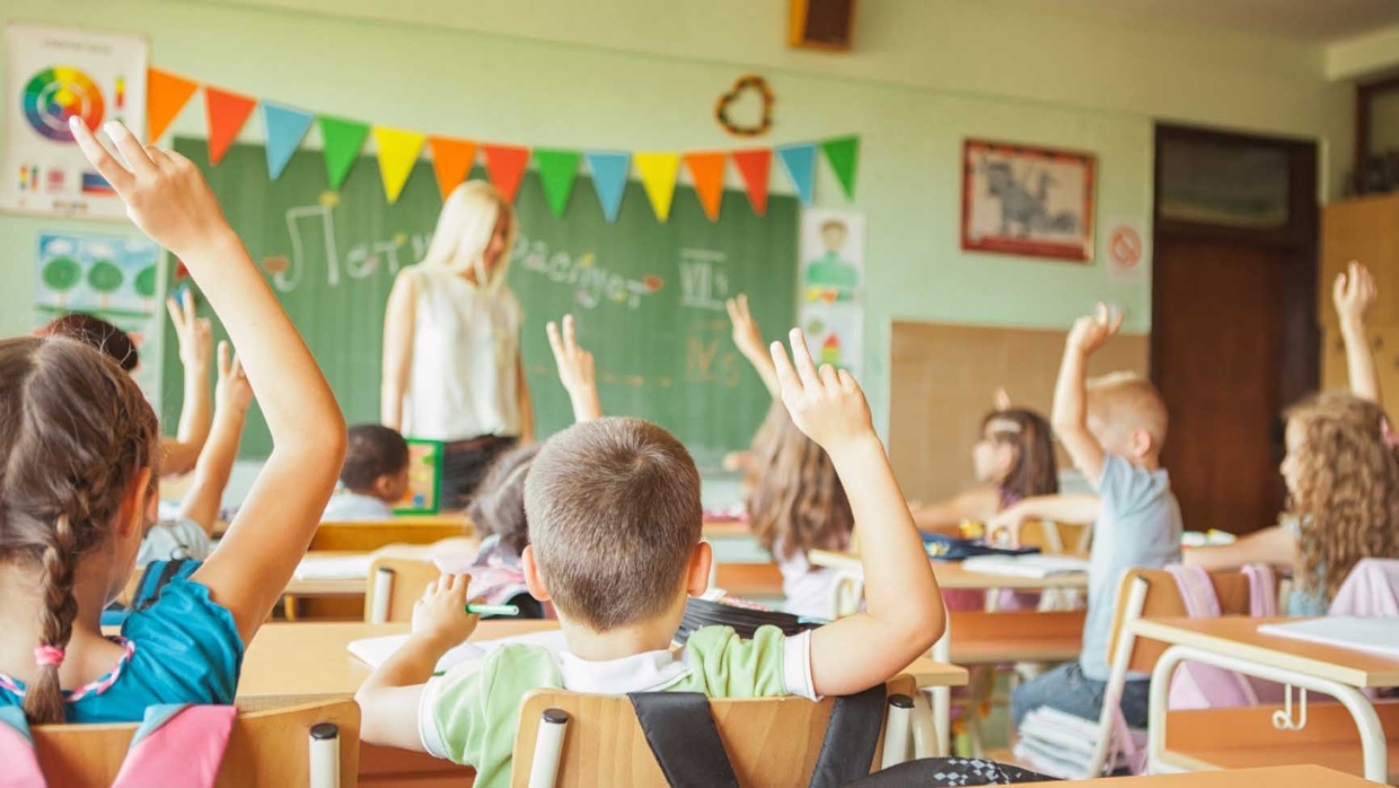Comprehensive Primary Science Tuition Singapore for Primary School Students
Comprehensive Primary Science Tuition Singapore for Primary School Students
Blog Article
Checking Out the Different Teaching Methods in Main Scientific Research Education And Learning Today
The landscape of primary scientific research education and learning is evolving, with various teaching methods getting prestige in contemporary classrooms. Inquiry-based discovering, hands-on experiments, and the combination of innovation are redefining how instructors engage young minds. Additionally, joint strategies and distinguished instruction are being utilized to accommodate the diverse demands of trainees, boosting both involvement and understanding. As we take a look at these approaches, questions arise concerning their efficiency and the implications for future instructional practices. What might these changes in method mean for the following generation of learners?
Inquiry-Based Knowing
Inquiry-Based Knowing (IBL) is an instructional method that motivates trainees to explore clinical principles via wondering about, examination, and hands-on experimentation. This method stresses the duty of pupils as active participants in their understanding, advertising vital thinking and analytical abilities. By involving with real-world questions, trainees become inspired and curious, which boosts their understanding of clinical principles.
In IBL, instructors serve as facilitators, assisting pupils as they browse their inquiries instead of delivering information directly. This student-centered method permits differentiation, fitting numerous finding out speeds and styles. Trainees establish skills in developing hypotheses, developing experiments, and assessing information, which are essential for scientific literacy.
Additionally, IBL fosters partnership amongst trainees, motivating them to share findings and concepts. This cumulative query promotes social skills and a feeling of area within the class. In addition, the procedure of questions motivates durability, as trainees discover to embrace failing as a tipping stone toward understanding.
Hands-On Experiments
Hands-on experiments are an important part of efficient science education and learning, matching the principles of inquiry-based understanding. These experiments enable students to involve straight with scientific concepts, cultivating a much deeper understanding through experiential understanding. By controling materials and observing results, young learners can realize abstract theories in tangible means.
Such activities promote crucial reasoning and problem-solving abilities, as pupils assume outcomes, conduct experiments, and assess results. This procedure urges them to ask concerns, improve their understanding, and create a scientific mindset. Additionally, hands-on experiments can be tailored to diverse understanding designs, making certain that all pupils have the possibility to engage meaningfully with the content.
Furthermore, hands-on experiments frequently motivate cooperation amongst peers, promoting teamwork and interaction abilities. Operating in groups enables pupils to share ideas, discuss searchings for, and find out from one another, which boosts their total educational experience.
Incorporating hands-on experiments into the primary science curriculum not only enriches the learning environment however likewise cultivates a lifelong interest in science. By actively participating in their education, students are extra most likely to create an interest for clinical query that expands past the class.

Modern Technology Integration
Integrating technology into key scientific research education has actually become progressively crucial in fostering student interaction and improving finding out end results. Using digital tools, such as interactive simulations, online labs, and instructional software application, gives students with opportunities to check out scientific principles in ingenious means. These resources assist in a deeper understanding of complex subjects by enabling students to picture and control variables that would certainly be not practical in a typical class setting.
Furthermore, technology integration urges customized learning experiences. Students can proceed at their own rate, taking another look at difficult concepts with multimedia resources, which satisfy different understanding styles. This flexibility not just sustains private development however also grows a sense of freedom in learners.
Additionally, innovation acts as a bridge to real-world scientific research, connecting pupils with existing research study and expert payments. Accessibility to scientific journals and on-line data sources widens trainees' point of views on clinical inquiry and fosters crucial believing skills.
Collaborative Knowing
Joint learning plays a crucial duty in primary science education and learning by cultivating team effort and communication skills amongst students. This method urges learners to collaborate, share knowledge, and take part in analytical, which enhances their understanding of clinical concepts. By participating in team tasks, trainees find out to verbalize their ideas, listen to varied perspectives, and discuss services, all of which are crucial abilities in both real-world and scholastic contexts.

Research suggests that joint knowing can bring about boosted inspiration and engagement in scientific research topics, as students discover satisfaction in shared experiences (primary science tuition Singapore). Furthermore, this strategy prepares students for future collective undertakings, outfitting them with the skills needed for efficient teamwork in higher education and learning and specialist environments. Ultimately, accepting joint learning in primary science education can dramatically improve the learning experience and promote a deeper understanding of scientific query
Set Apart Guideline

Separated guideline can show up in numerous means, such as differing the web content, procedures, or items of knowing. Teachers might utilize tiered projects that provide differing degrees of complexity, enabling students to function at their particular readiness degrees. Furthermore, versatile grouping strategies can promote partnership among pupils with different abilities, cultivating peer knowing.
Assessment plays a crucial duty in this technique, as it informs guideline and helps instructors comprehend each pupil's special needs. Developmental assessments, such as monitorings and quizzes, can direct educators in changing their approaches to enhance finding out outcomes. primary science tuition Singapore. Eventually, by implementing separated instruction in main scientific research education, instructors can cultivate a much more blog here fair and reliable learning atmosphere, encouraging all students to reach their full possibility in understanding scientific sensations
Conclusion
In recap, the diverse mentor methods in key science education and learning, including inquiry-based discovering, hands-on experiments, technology combination, collective discovering, and differentiated instruction, collectively add to a much more reliable understanding setting. These techniques promote crucial thinking, analytical skills, and a deeper comprehension of scientific ideas. By carrying out these approaches, teachers can produce interesting and encouraging class that attend to the different requirements of trainees, ultimately fostering a lifelong interest in scientific research and boosting scholastic success.
Inquiry-Based Discovering (IBL) is an instructional method that encourages students to discover clinical ideas through questioning, examination, and hands-on trial and error.Collective knowing plays an important role in key scientific research education and learning by promoting teamwork and interaction skills among pupils.Study suggests that collaborative understanding can lead to boosted motivation and involvement in science this post topics, as trainees find satisfaction in shared experiences.In fostering a comprehensive discovering environment, differentiated guideline emerges as a key approach to fit the diverse demands and capabilities of trainees in primary scientific research education. Inevitably, by applying separated instruction in main science education and learning, instructors can grow a much more reliable and fair learning atmosphere, empowering all pupils to reach their full capacity in comprehending clinical sensations.
Report this page